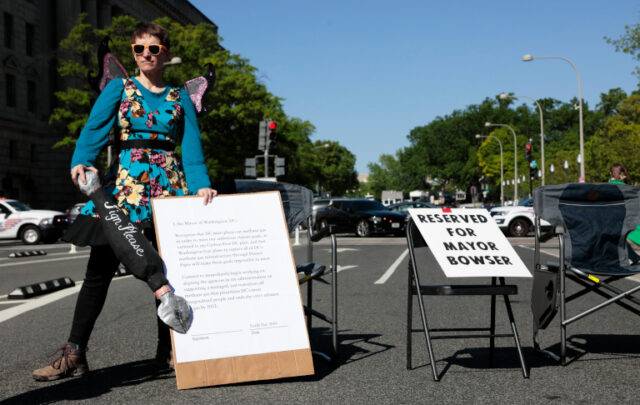 With the national weather maps pinker than a Barbie® SUV, more Americans are grudgingly accepting that climate change is for real, that it’s largely caused by humans, and that it’s a major threat to us here and now. It’s probably only a matter of time before America and the world finally start taking the problem seriously…
With the national weather maps pinker than a Barbie® SUV, more Americans are grudgingly accepting that climate change is for real, that it’s largely caused by humans, and that it’s a major threat to us here and now. It’s probably only a matter of time before America and the world finally start taking the problem seriously…
…and ExxonMobil and Rupert Murdoch are making sure that multinational corporations will be first in line with the solutions!
The evidence? Two short quotes, and not a whole lot of inductive reasoning.
Three weeks ago, ExxonMobil CEO Rex Tillerson was delivering a talk on energy at the prestigious Council on Foreign Relations. In answer to a question about the impacts of climate change, he said "[W]e believe those consequences are manageable… It’s an engineering problem and it has engineering solutions." [source]
Then last week, on his not-quite-as-prestigious but arguablly more public Twitter feed, Rupert Murdoch—CEO of Fox News and Wall Street Journal parent company News Corp.—wrote, "Climate change very slow but real. So far all cures worse than disease." [source]
The predictable teeth-gnashing and mockery and #YHGTBFKM-ing ensued. But this past Sunday, while 50 million Americans in were church and likely not hearing about the moral failure in abandoning the least of our brothers to climate-induced disasters, it occurred to me: You don’t rise to be CEO of the most profitable and influential corporations in the world by ignoring unpleasant facts. Quite the opposite. You absorb all the reality-based information you can and use it to gain advantage.
So Tillerson and Murdoch have presumably accepted the scientific consensus on climate change since it was established years ago. And yet, both men lead organizations that have been creating obstruction and sowing confusion around climate change responses for quite some time. One might politely suggest that these CEOs have more faith in market capitalism than in democratically elected governments to respond to climate change in ways that best suit… well, ExxonMobil and News Corporation (one guess what Tillerson’s preferred "engineering solutions" and Murdoch’s better-than-the-alternatives "cure" might be).
Indeed, something very similar has already happened. In 2005, as oil was blowing past the $30 per barrel ceiling it had held for twenty years, a report commissioned by the U.S. Department of Energy warned that peak oil was "an unprecedented risk management problem" requiring years of preparation and "intervention by governments." ExxonMobil pushed back hard, including with advertisements mocking such concerns with a cartoon figure peering up at a cloud-covered mountain. Seven years later, communities (and businesses, and families) across the country are realizing how completely unprepared they are for the "new normal" of sky-high oil prices, while ExxonMobil enjoys sky-high profits.
Okay, fine. Tillerson and Murdoch are self-evidently masterful corporate titans, and advancing their own interests at the expense of everyone else’s is typical cutthroat business tactics.
Except what’s at stake with climate change are human civilization and the planetary ecosystem it depends on. It’s not just XOM and NWS shareholders but all of us who will lose if their power play fizzles.
Now that’s a moral failing of the highest order.





